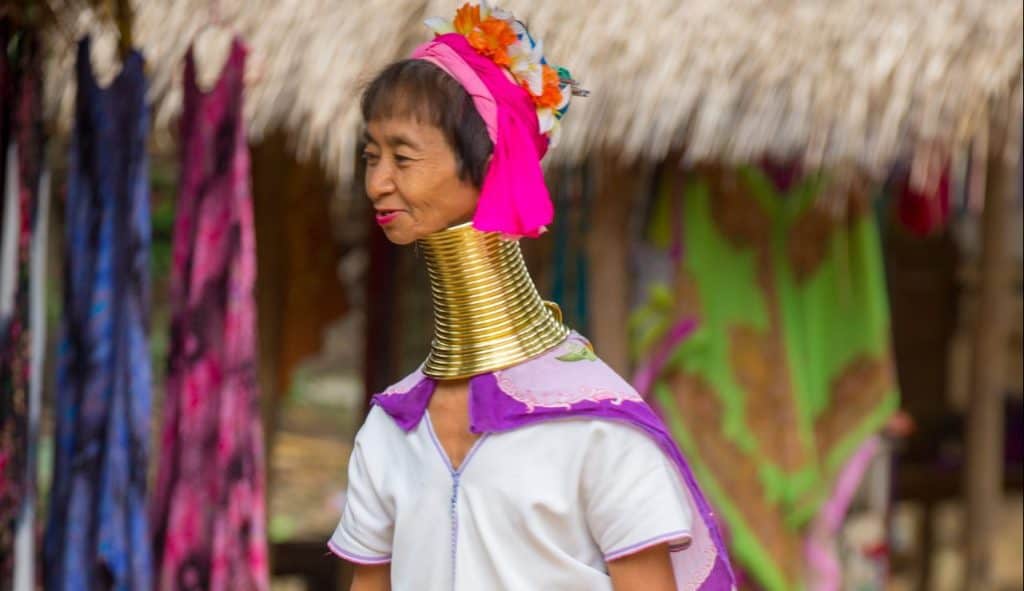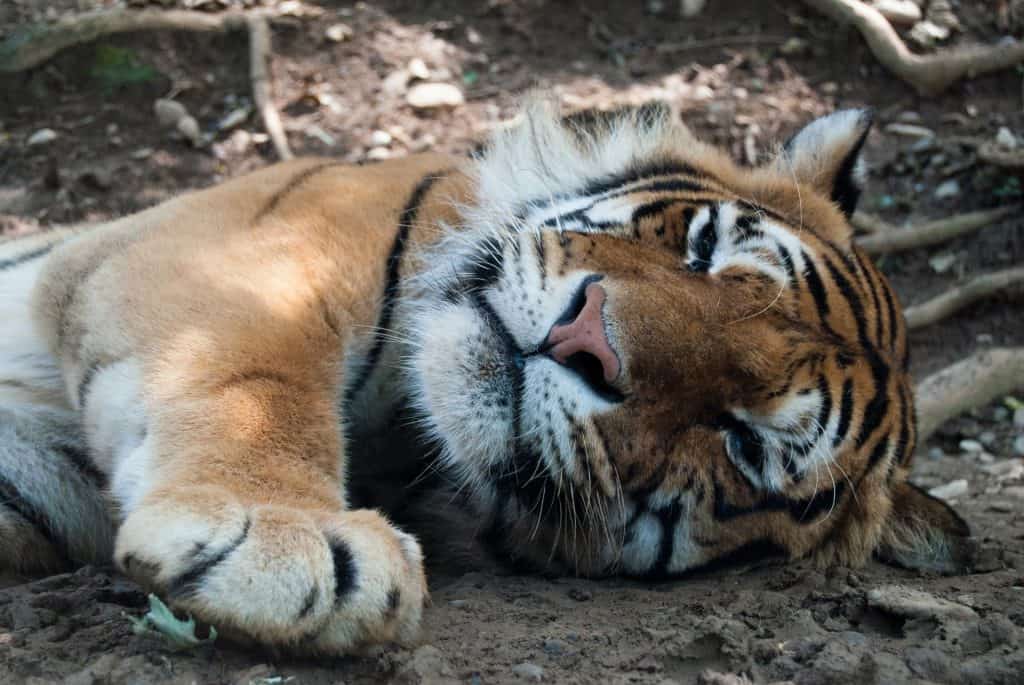Thailand is one of our most loved and visited countries in the world. Nearly 40 million people visited in 2019 and, bar COVID, numbers have risen steadily every year, so it’s no surprise that Thailand is reliant on tourism. Around 12% of the economy and 36 million jobs come from the travel industry. However, Thailand has also suffered some of the worst impacts of tourism, including mass tourism and exploitation, and has been slow to catch up with the concept of responsible travel.
Responsible tourism in Thailand today
Thailand’s rapid rise in popularity as a tourist destination began to catch up with itself in the nineties, but it has only been in the last few years that the government has been actively working to prevent the negative aspects of tourism and seriously begin promoting Thailand as a responsible travel destination. In 2017 smoking was banned on a number of highly popular beaches to limit ocean waste. In 2018 single use plastics were banned at more than 150 national parks and measures such as no coral anchoring and fishing were introduced across Ko Tao, Phangan and Samui aimed at reducing marine damage. Agro and rural tourism are being promoted to take the pressure off of overtouristed regions and the country now plans to move away from mass tourism marketing towards high value visitors.
It has only been in the last few years that the government has been actively working to prevent the negative aspects of tourism and seriously begin promoting Thailand as a responsible travel destination.
So how has tourism damaged thailand?
Overtourism
Thailand’s beaches are a massive pull factor for people to visit. One beach, Maya Bay, became particularly famous after being cast the lead role in the film adaptation of Alex Garland’s ‘The Beach’ in 2000. At its peak popularity the small bay was visited by an unsustainable 6000 people a day. Unchecked visitor numbers caused extensive damage to the coral reef, plastic pollution waste, noise pollution and over exploitation of resources. The government banned visitors in 2018 and has only just reopened in 2022, with caveats including no swimming, no boats in the bay and capped numbers. Ko Tachai, in the Similan Islands has also suffered from overtourism and was shut indefinitely in 2016.
Unchecked and rapid development is also affecting some of Thailand’s most beautiful islands including Ko Phangan and Ko Lipe. These, and other popular islands are at risk of tourism’s damaging effects including rapid and irresponsibly-built beachfront development, increase in pollution, single plastic waste, coral reef damage from unchecked numbers of snorkelers and divers and wildlife disruption. When tourist numbers fell during the pandemic, turtles returned to their nesting sites on Ko Samui, highlighting the damage unchecked tourist numbers can do to local ecology.
Orphanages, exploitation and white saviourism
Unskilled tourists that visit or volunteer in orphanages may feel that they are doing a meaningful and decent thing, but in reality they are perpetuating a system that is hugely damaging, that does not have rigorous checks to safeguard vulnerable children, and causing harm in providing care for a short period of time before leaving again. It is not beneficial for children to have many people come through, care for them before leaving again.
Recent campaigns and research have shown that orphanages should be the last place for children to go, as being without familial caregivers is hugely damaging to children. Yet 80% of children in residential care are not orphans and have family that could care for them. Poverty, access to education and tourism are some of the drivers behind this crisis.
Worse, are the cases of children being exploited, hurt or trafficked and this is truly the ugly side of tourism, driving some of the demand. Modern slavery is alive and well, with Thailand being home to 610,000 human trafficking victims (adults and children). Safe Child Thailand lists the active organisations involved in tackling trafficking in Thailand.
While many children may be lucky enough to not have ended up in an orphanage, there are still over 1 million that live in poverty in Thailand, and many will be seen begging out on the streets, particularly in popular tourist areas. This is expected to increase due to COVID and rising inequality. It’s always difficult to know what to do, but ultimately giving money to begging children just encourages the cycle of poverty and keeps children out of school, and can fuel ‘white saviourism’, where a white, or more monied visitor ‘saves’ a non-white, poorer person, without thinking about what agency that person has. It is sympathy tourism. Donating money to a local charity is a much better way to have a positive impact.
Adults can also be a victim of exploitation. In the far northern reaches of Thailand live the Paduang/Kayan Lahwi people, whose women are well known for their long necks from the gold neck coils worn since childhood. The tribes are actually Burmese refugees, so they are already marginalised with little rights. And the government is keen to keep them here in limbo due to the money they bring in from tourism.
A visit to a hill tribe in northern Thailand can be beneficial, but it has to be done in the right way. Being shepherded in on a tour bus by an external tour operator to take a picture before disappearing is very different to spending two days hiking with a community-run outfit and staying overnight at a homestay and having a more authentic interaction. Greater power belongs to the community to run things how they want to. It provides a better source of livelihood for people and enables a continued sense of pride in customs and heritage, if people have more control and ownership over how they want to present things to visitors.

Animal cruelty
Thailand was home to 100,000 elephants in 1900. Now there are only 2000 wild elephants left, with another 2000 in captivity. Elephants have featured in Thai culture for many years, during warfare and battle, as status symbols for royalty and more recently as powerhouses to drag huge logs through dense forests. When logging was banned in 1989 elephants and their keepers, or mahouts, turned to tourism as an alternative livelihood.
Elephant tourism is now growing in popularity with a 30% rise seen in captive elephants at tourist venues, since 2010. Yet the World Society for the Protection of Animals (WSPA) found that only 7% of captive animals are kept in high welfare environments.
Elephant riding is also unethical. Cruelty through bullhooks and beating is often used to keep elephants submissive, and babies are taken away from mothers early to break them and get them used to people. Sitting on an elephant is also very different to sitting on a horse because you are sitting on the elephant’s nec, and it is not designed to withstand the weight of a human over long periods of time. Bathing with elephants is also not great, as it is not a natural thing for elephants to be doing. Tourism dollars have driven this, causing more ‘sanctuaries’ to pop up, and increasing numbers of elephants taken from the wild or bred from captivity.
For a positive experience, seek out elephants in their natural habitat or in true sanctuaries, where they are allowed to behave as wild elephants with minimal human interaction. WSPA lists these sanctuaries as providing high quality care and ethical interactions with elephants:-
ChangChill
Boon Lott’s Elephant Sanctuary
Burm and Emily’s Elephant Sanctuary
Elephant Nature Park
Following Giants
Global Vision International
Kindred Spirit Elephant Sanctuary
Mahouts Elephant Foundation
Phuket Elephant Sanctuary
Somboon Legacy Foundation
Tree Top Elephant Reserve Phuket
Another animal which has suffered in Thailand is the tiger. There are zero ethical sanctuaries to see tigers in Thailand and only 200 or so in the wild. Tigers made the headlines in 2016 when ‘Tiger Temple’, a buddhist monastery and tiger sanctuary was closed down after accusations of inbreeding, trafficking and animal cruelty

Where to find more information
http://www.responsiblethailand.co.uk/
https://7greens.tourismthailand.org/en/
https://www.thairt.org/